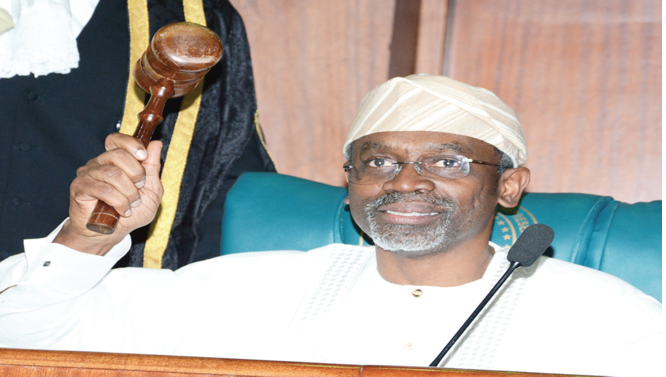Gbajabiamila Seeks Amendment Of NYSC Act For Teachers Recruitment
“I will seek legislation to amend the National Youth Service Act to allow the corps to establish a “Teaching for Nigeria” pathway which will allow for the identification, recruitment and deployment of willing, capable and promising young Nigerians to serve as teachers in underserved areas during their service year and for a number of years after,” Gbajabiamila said during Thursday’s plenary.
In exchange for their decision to teach in schools, Gbajabiamila said the Federal Government would be committed to funding their post-graduate education in addition to whatever allowances they might receive during their deployment as corp members.
The speaker lamented that school attendance rates and quality of education have not improved in too many parts of Nigeria.
“Over the last twenty years, the government of the Federal Republic of Nigeria has committed to a programme of educational reform that has resulted in the allocation of significant sums of money to fund basic education access in our country,” Gbajabiamila said.
He said the current number of students and teachers in schools falls short of expectations after investments have not yielded the desired outcomes for the country.
“The time for a massive course correction has come,” Gbajabiamila said.
He said deliberations on the amendment of the act will be formulated into an actionable policy plan to be implemented diligently.
Gbajabiamila, however, noted that Nigeria must tackle address the knowledge deficit in the country to tackle insecurity and poverty As at April 2019, the Nigerian government said its out of school children have reduced from 13 million to 10.2 million.
The most endemic states according to Nigeria’s education minister Adamu Adamu are Kano, Akwa Ibom, Katsina, Kaduna, Taraba, Sokoto, Yobe, Zamfara, Oyo, Benue Jigawa and Ebonyi State.
According to World Poverty Clock, Nigeria has the most people living in extreme poverty in the world in July 2018.
“We will not eradicate poverty from our land or meet the challenges of insecurity, we cannot defeat ignorance and strife or attract foreign investment in significant numbers to make a substantial economic difference until we have ensured for all our people access to a modern education that empowers them to participate fully in the 21st-century knowledge economy,” Gbajabiamila said.




